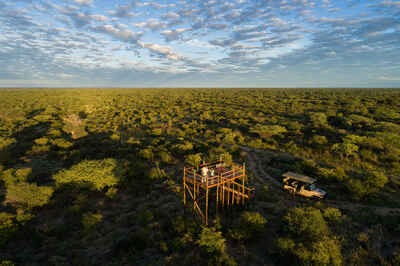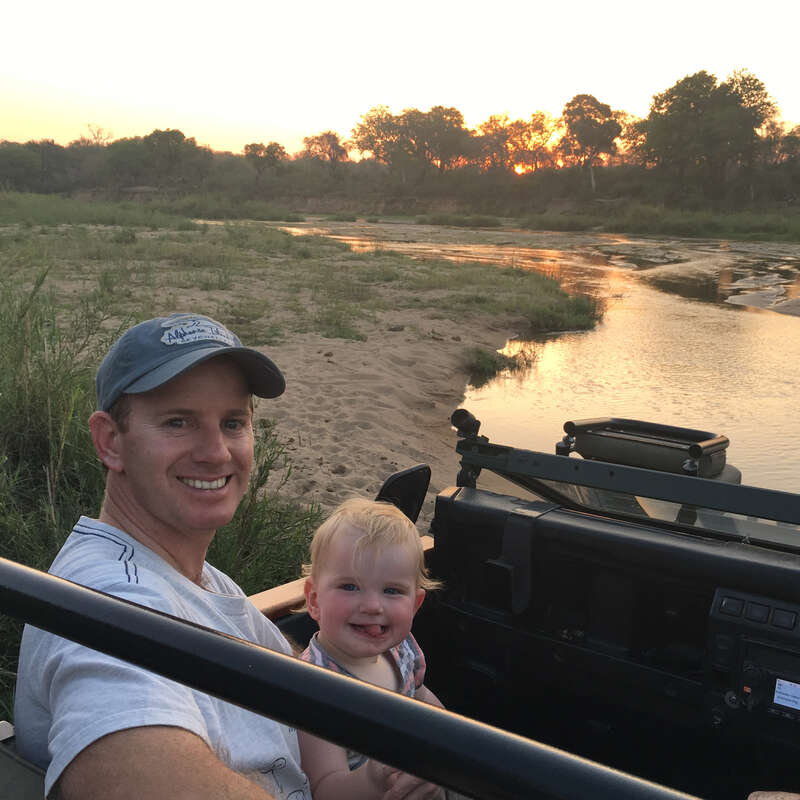About Dinaka
Dinaka, previously known as Dinaka Safari Lodge, is located in its own 200km² game reserve on the northern ...
... border of Botswana's Central Kalahari Game Reserve. The reserve itself is home to a broad range of game, from oryx and springbok to predators that include lion and brown hyena. As Dinaka is on private land, the range and flexibility of activities here is greater than that offered in the neighbouring CKGR.
From what we know of the new owners of Dinaka and their other Botswana properties, we expect to find a well-run and smart camp, with friendly service and high-quality guiding. The Kalahari experience at Dinaka will almost certainly make a good addition to time spent in Botswana and will offer a stark contrast to any time spent in the wetter Delta or Chobe areas.
Our view
From what we know of the new owners of Dinaka and their other Botswana properties, we expect to find a well-run and smart camp, with friendly service and high-quality guiding. The Kalahari experience at Dinaka will almost certainly make a good addition to time spent in Botswana and will offer a stark contrast to any time spent in the wetter Delta or Chobe areas.
Accommodation
8 safari tents
Children
Best for 7+
Open
All year
Activities

4WD Safari

Birdwatching

Cultural excursion

Guided walking safari

Night drive

Private activities
Traveller reviews of Dinaka
9 real, un-edited reviews from Expert Africa's travellers.
Arrived 20 May 2025, 3 nights
"Dinaka - friendly, knowledgable & efficient"
Overall rating: Excellent
Arrived 18 Apr 2025, 2 nights
"Dinaka review"
Overall rating: Excellent
Arrived 18 Apr 2025, 2 nights
"Dinaka review"
Overall rating: Average
Arrived 23 Mar 2025, 3 nights
"Dinaka review"
Overall rating: Excellent
Arrived 25 Sep 2024, 3 nights
"Dinaka review"
Overall rating: Good
Arrived 31 May 2024, 3 nights
"Dinaka review"
Overall rating: Excellent
Arrived 18 Sep 2022, 1 nights
"Dinaka review"
Overall rating: Excellent
Arrived 6 Aug 2022, 3 nights
"Dinaka review"
Overall rating: Excellent
Arrived 18 Aug 2019, 3 nights
"Very enjoyable stay at Dinaka"
Overall rating: Excellent
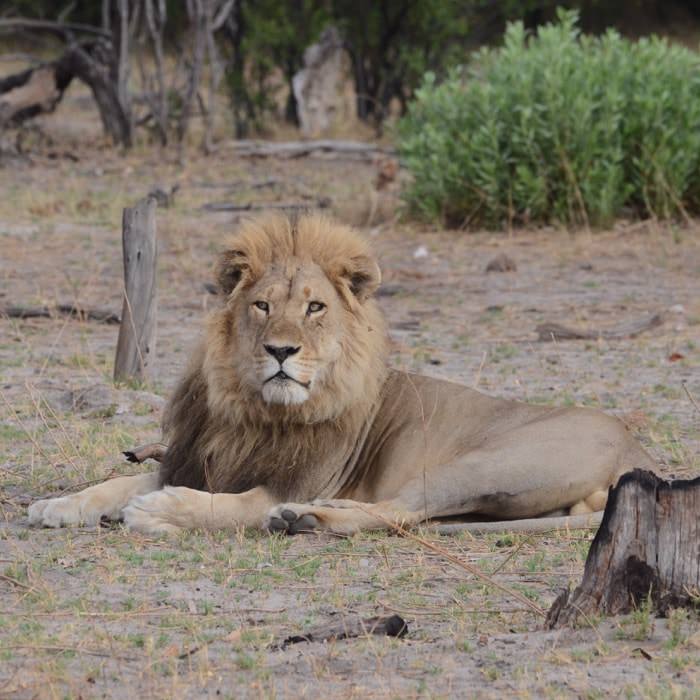
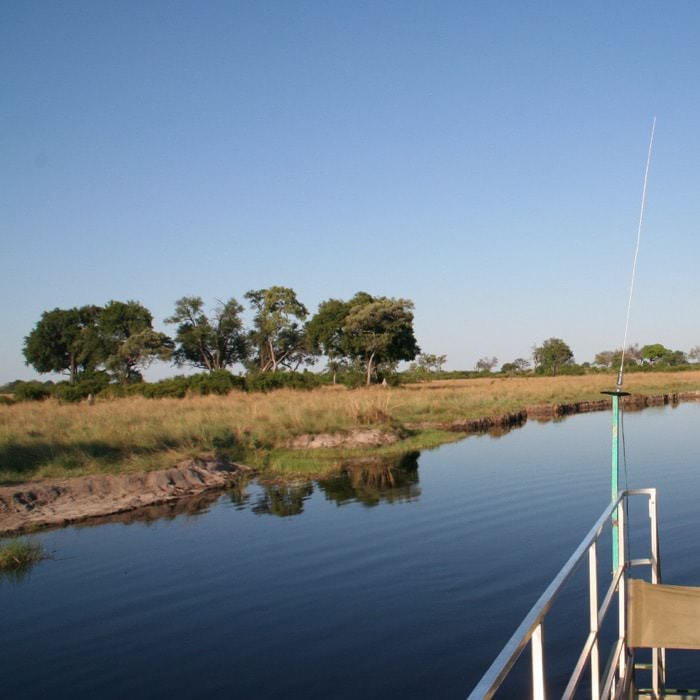
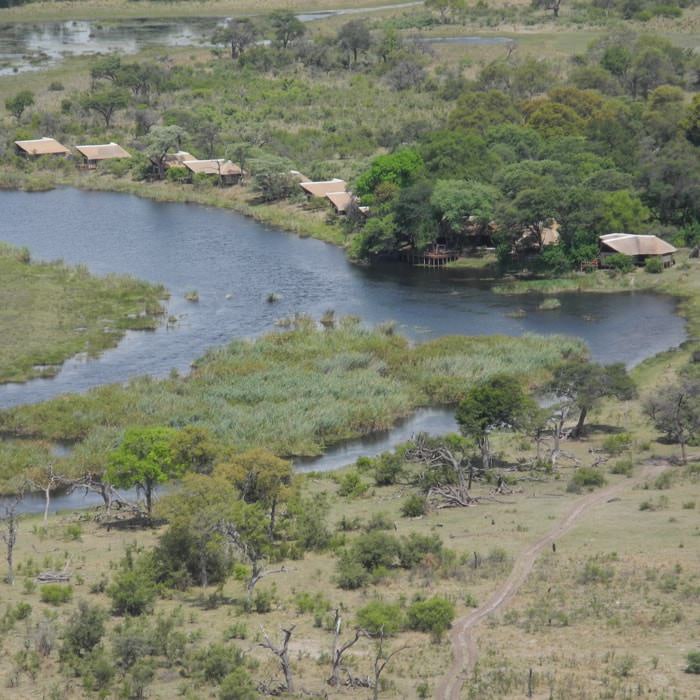
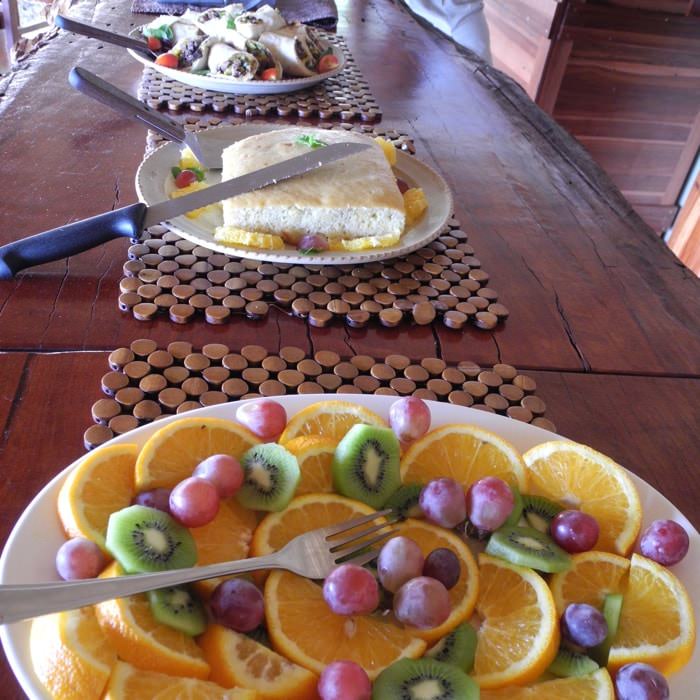
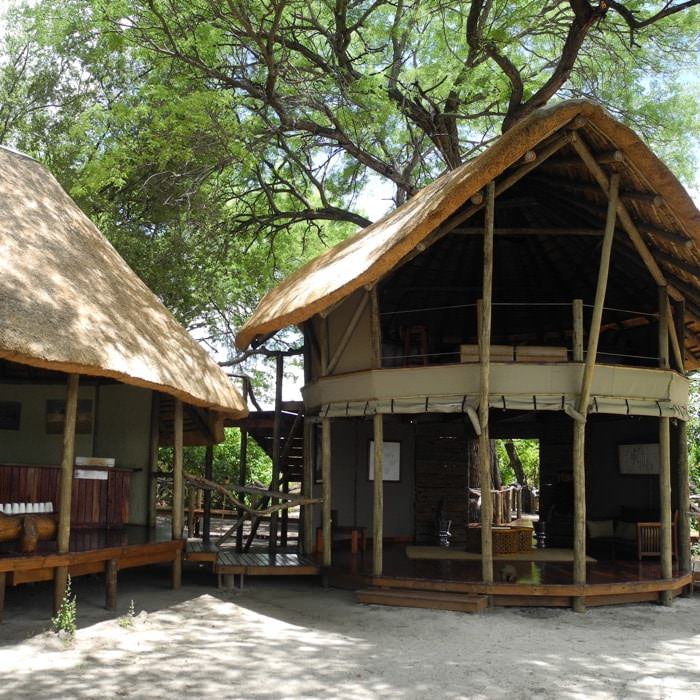
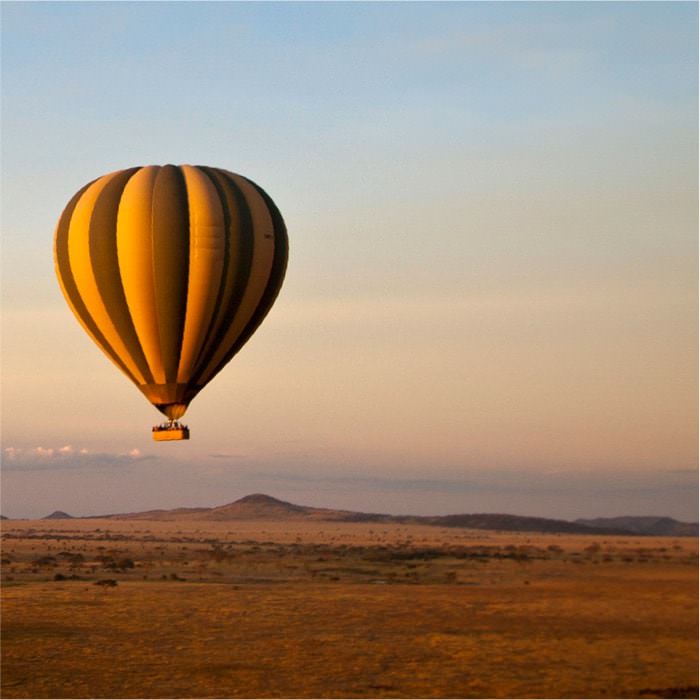
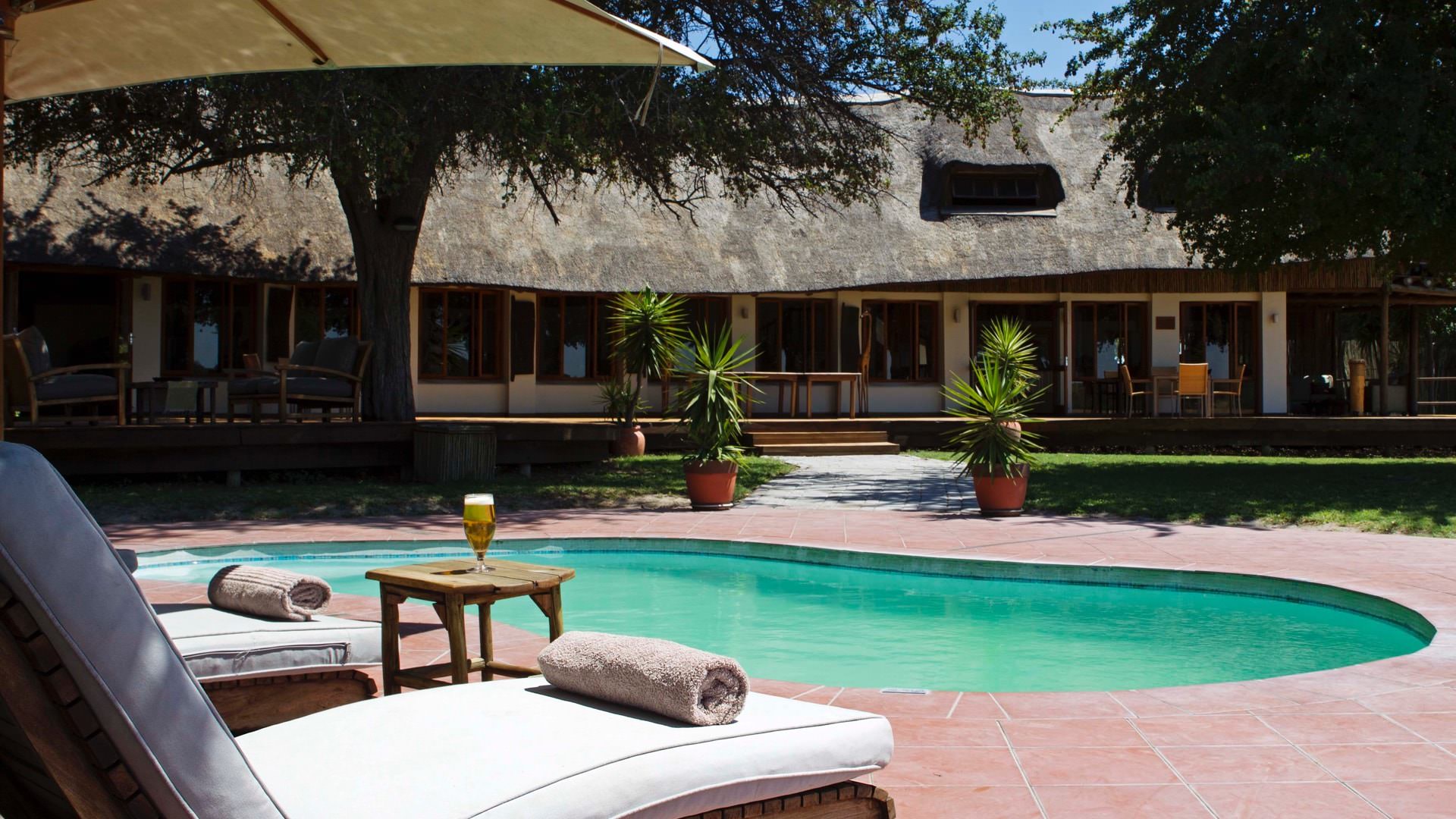
Expert Africa's gallery
When we travel we take lots of photos ourselves to give you a real and un-edited view of the safaris. See our 1 pictures and 1 videos of Dinaka to get the candid view.
View galleryDinaka: Our full report
Dinaka, previously known as Dinaka Safari Lodge, is located in its own 200km² game reserve on the northern ...
... border of Botswana's Central Kalahari Game Reserve. The reserve itself is home to a broad range of game, from oryx and springbok to predators that include lion and brown hyena. As Dinaka is on private land, the range and flexibility of activities here is greater than that offered in the neighbouring CKGR.
Despite being quite an established lodge, the original family-run Dinaka was for many years largely under the Expert Africa radar: whilst we had heard of it, we knew little in terms of detail. This changed in mid-2017 when the lodge was bought by one of our long-term partners and reliable safari operator Ker and Downey Botswana. Though no one from our team has yet visited the lodge, this is what we know so far.
Between December 2017 and March 2018, Dinaka is undergoing extensive refurbishments. Once re-open we expect it to offer the same high standards as its sister properties, Shinde Camp, Okuti and Kanana, which we've found to be well run, with consistently good service and accommodating and friendly staff. That said, the environment and wildlife of the Kalahari will result in a very different experience to that at Dinaka’s sister camps in the Okavango Delta.
Dinaka will have eight safari tents, including one family tent, in part reworked and revamped from the original lodge. Each of these will be raised on wooden decking, affording views over a permanent waterhole. The twin/double tents will be en suite, while in the family tent, two tented rooms will share a deck and bathroom. All the bathrooms will have hot and cold running water, flush toilets and both indoor and outdoor showers.
In contrast, we know little about the new main area, perhaps alluding to a more significant refurbishment; we will be intrigued to see the final results. We do know that the main area will front the waterhole and include a bar, lounge and dining area. Furthermore Dinaka will be wheelchair accessible, with all areas of the lodge to be linked by wooden walkways.
Dinaka's activities will centre around day and night game drives and nature walks. From our previous experience of the area we don't expect large densities of big game, though we would expect the birding to be excellent, with over 200 bird species reportedly spotted on the reserve. We understand that the lodge will have one or more photographic hides, allowing both big game and birding enthusiasts the chance to watch and photograph whatever may pass by.
Like the neighbouring Deception Valley Lodge and Haina Kalahari Lodge, Dinaka is fenced to protect the wildlife within the reserve. Conversely, this also disrupts the natural migration of game in the area, so you will not observe the usual migration-centric fluctuations in game numbers that you would find in the CKGR. Dinaka's game, confined to the reserve boundaries, follows a more similar cycle to the Okavango Delta and viewing is at its peak in the dry season (June to October), once the vegetation has died back.
Activities
4WD Safari
Birdwatching
Cultural excursion
Guided walking safari
Night drive
Private activities
Families & children
- Attitude towards children
- The child policy at Dinaka has not yet been finalised, but with a family tent it would seem that the lodge is aiming to be a family-friendly destination.
- Property’s age restrictions
- Based on Ker and Downey's child policy elsewhere we are expecting Dinaka to welcome children of 7 years and above.
- Notes
- Given that the lodge buildings will be raised off the ground, and the tents and walkways will not be fenced, we would recommend that children are supervised at all times.
Food & drink
- Usual board basis
- Full Board & Activities
- Drinks included
- We expect that drinking water, as well as local and South African soft and alcoholic beverages such as beer, cider, house wines and spirits will be included at Dinaka. Fine wines, imported spirits and liqueurs will likely come at an extra cost.
Our travellers’ wildlife sightings from Dinaka
Since mid-2018, many of our travellers who stayed at Dinaka have kindly recorded their wildlife sightings and shared them with us. The results are below. Click an animal to see more, and here to see more on our methodology.

100% success

100% success

89% success

89% success

67% success

33% success

22% success

11% success

11% success

0% success

0% success

0% success

0% success

0% success
Getting there
- Location
- Central Kalahari Game Reserve, Botswana
- Ideal length of stay
- Two–three nights is probably the optimum stay here.
- Directions
- Dinaka will usually be accessed by light aircraft, although it could also be visited as a part of a privately guided trip.
- Accessible by
- Fly-and-Transfer
Health & safety
- Malarial protection recommended
- Yes
- Medical care
- The nearest doctor is in Maun, a drive of at least four hours. Medical evacuation is available in case of emergencies.
- Dangerous animals
- High Risk
- Fire safety
Useful info
- Disabled access
- On Request
Plan and book your trip with Expert Africa
All of our trips are tailor-made, so we'll always adapt them to suit you. Talk to an Expert and let us plan and arrange your perfect trip.

Talk to an Expert
Call or email us now! We’ll match you with the Specialist in our team who is best suited to help you. Then together we can start planning your trip.

Set up your itinerary
Based on our experience and your ideas, your specialist will create a detailed, costed itinerary. We’ll refine it together, until we have a trip that you’re perfectly happy with.

Prepare for your trip
The same Specialist will make the seamless arrangements for your trip, send you detailed travel documents, and be available to answer any questions before you depart.

Travel with peace of mind
After you set off, you’ll be cared for by our partners in Africa, most of whom have worked with Expert Africa for decades. And if you ever need us urgently, we’re available 24/7.

When you return
We love to learn about your trip, and so will always be grateful if you’ve the time to give feedback to your Specialist when you return.
Dinaka's location
Look closer at the environment and surroundings of Dinaka.
Excursions from Dinaka
Optional extra day-trips and excursions possible whilst you're staying at Dinaka. Talk to us: these are usually best arranged before you go.
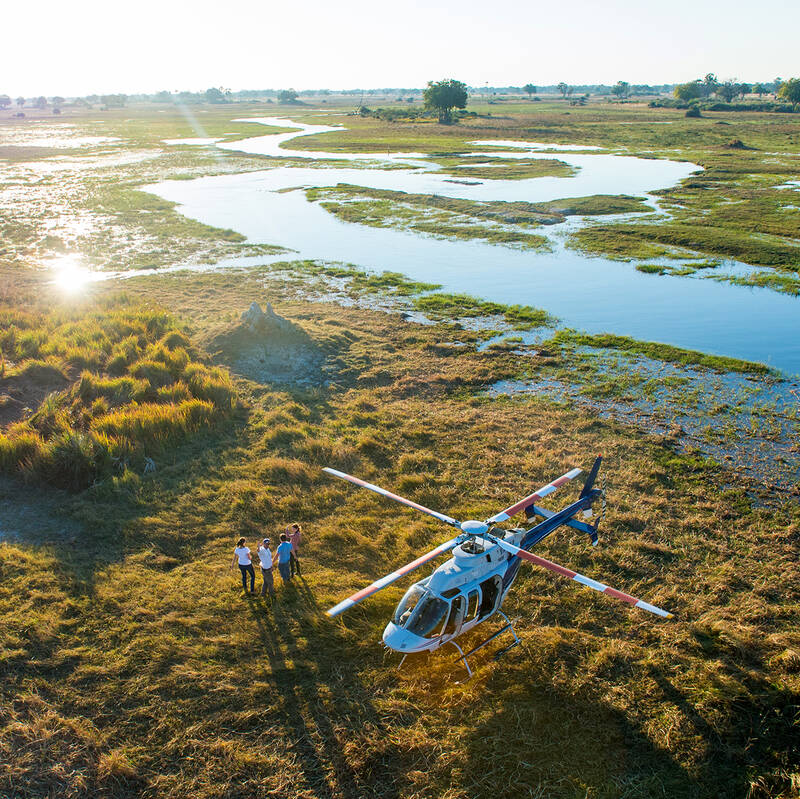
Helicopter Flight - Botswana
Various: from 30 minutes to half a day.
Low-flying, agile and offering superb views, helicopters are an ideal way to move around the Okavango Delta.You can use them instead of fixed-wing inter-lodge transfers or as an addition to other wildlife watching activities, and of course, helicopters can hover to allow that perfect pic, whereas fixed-wings can’t.
More about Helicopter FlightOther lodges in Central Kalahari Game Reserve
Alternative places to stay in this same area.
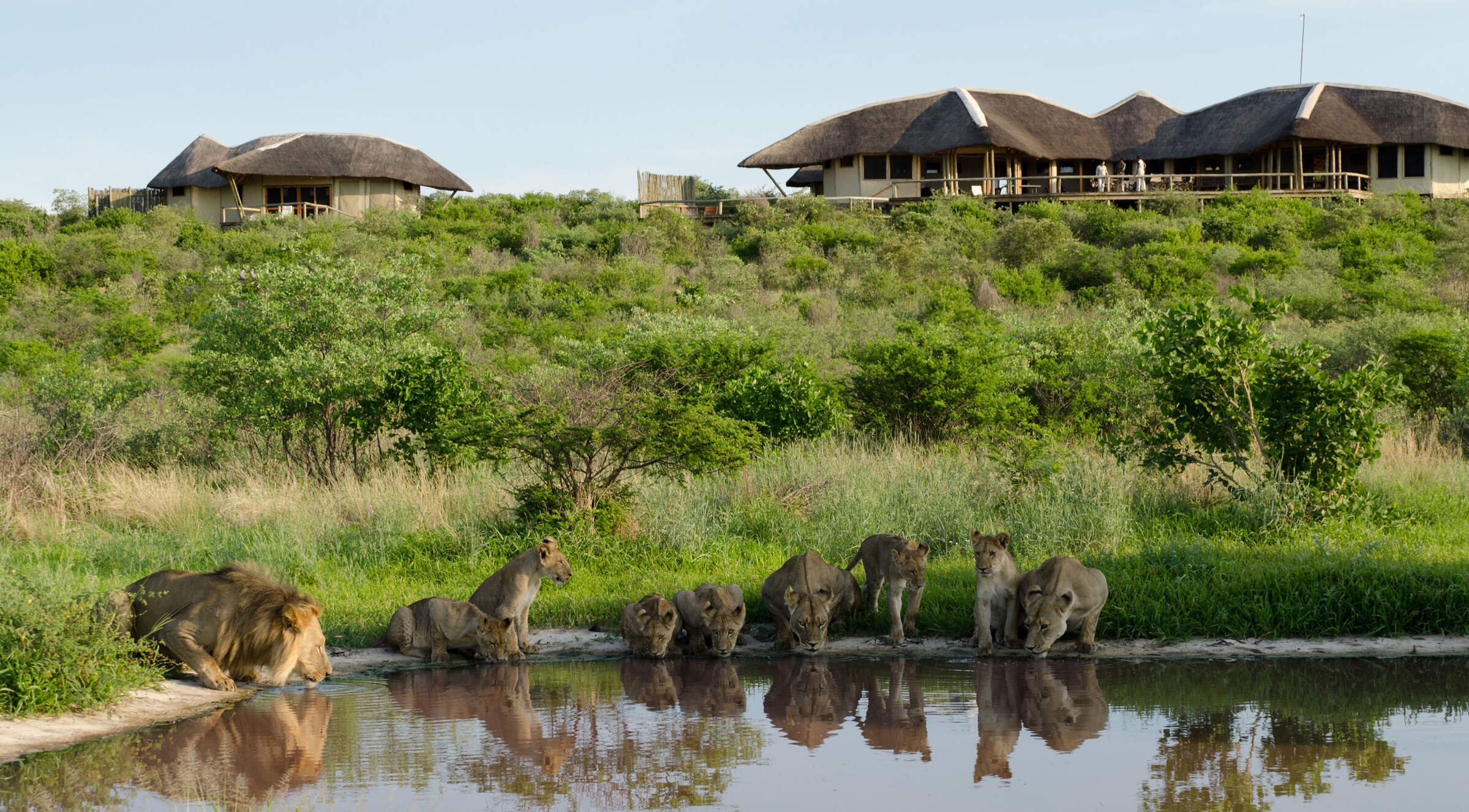
Tau Pan Camp
The comfortable Tau Pan camp inside the Central Kalahari Game Reserve offers some of Botswana's best summer game viewing and birdwatching.
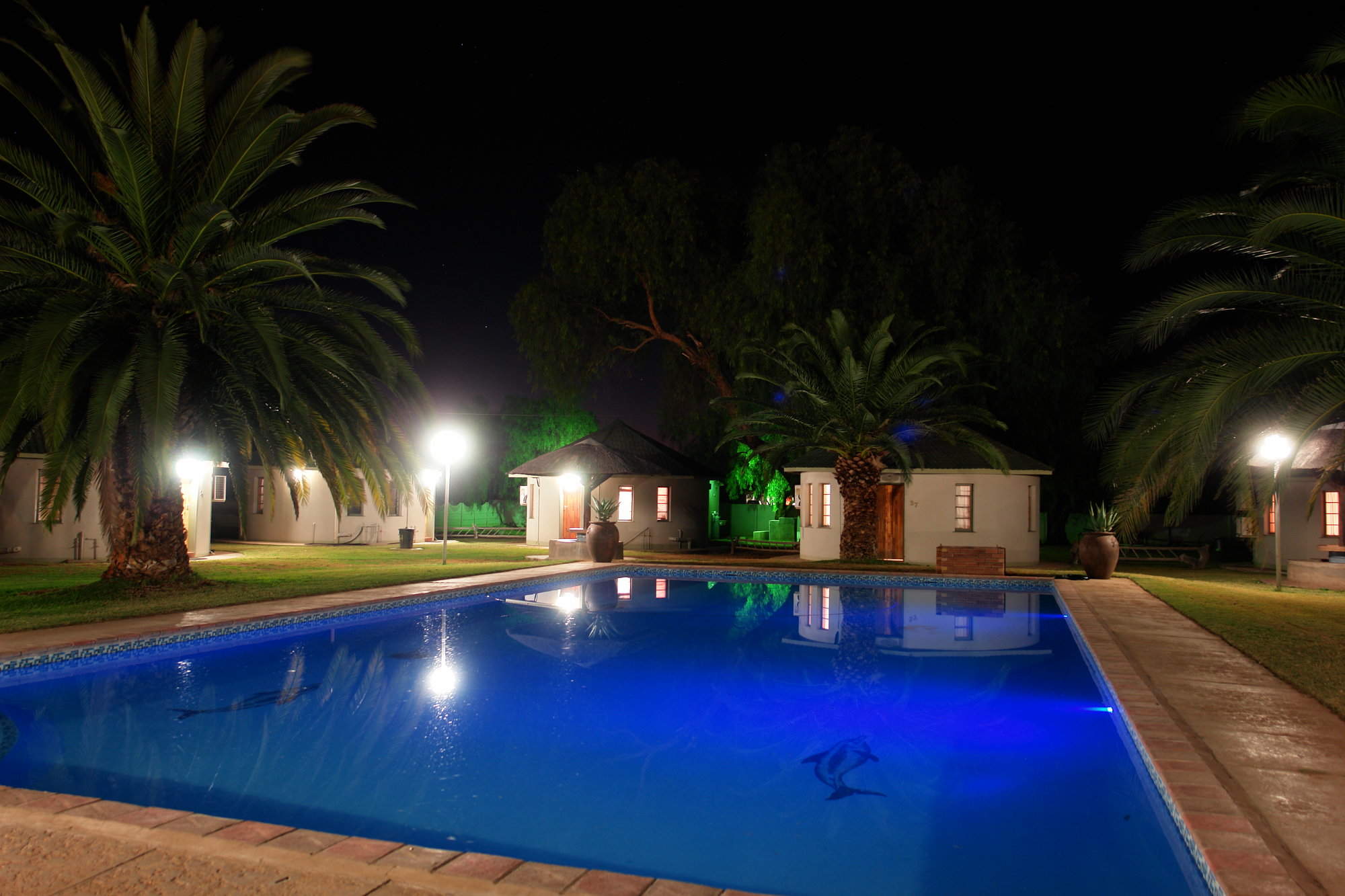
Kalahari Arms Hotel
Kalahari Arms Hotel, in the town of Ghanzi, is a practical overnight stop for travellers crossing the Kalahari to or from Namibia.
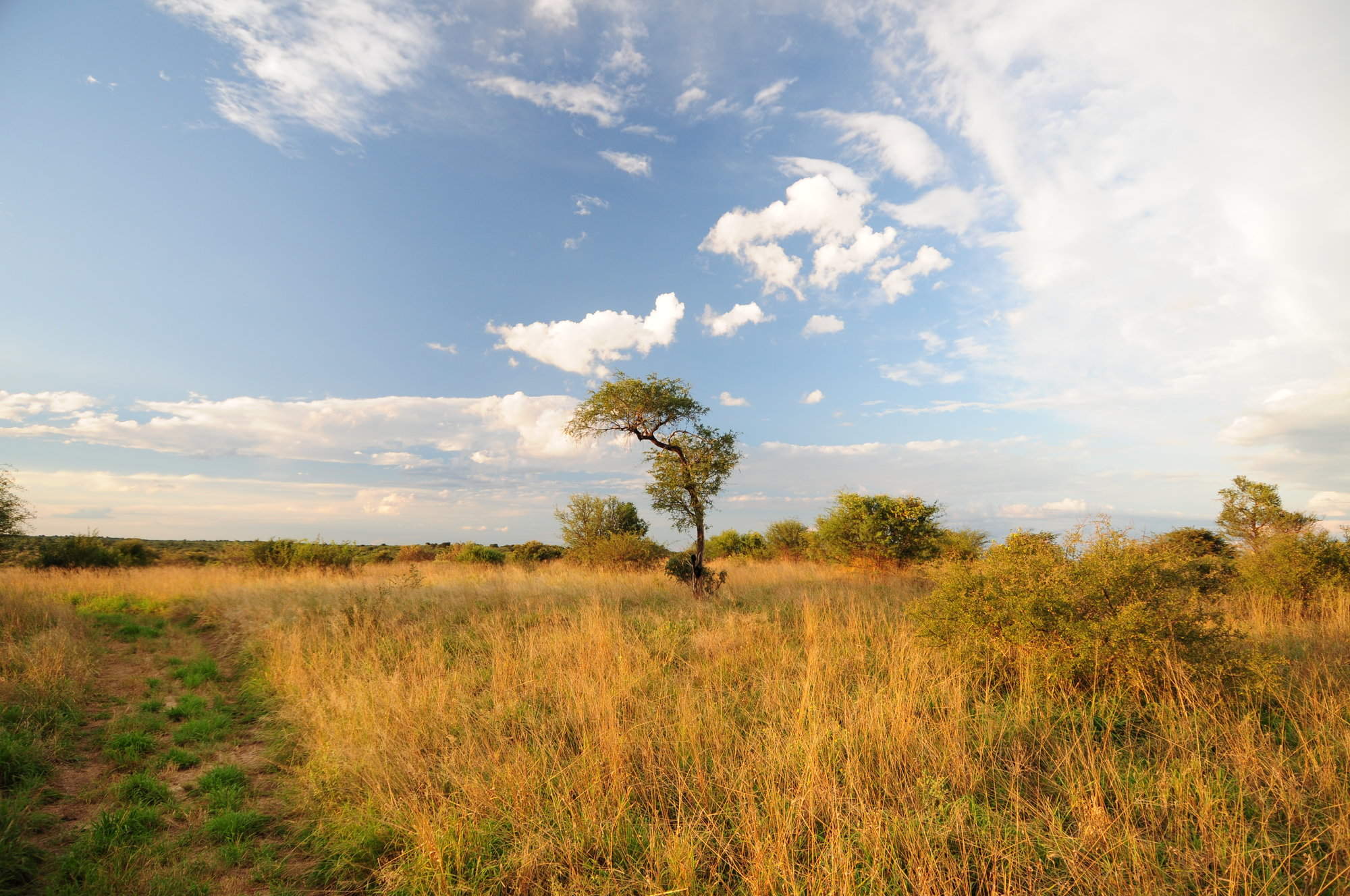
Deception Valley Lodge
A private reserve on the border of the CKGR, Deception Valley Lodge offers more flexible activities than within the reserve and a particularly good Bushman experience.
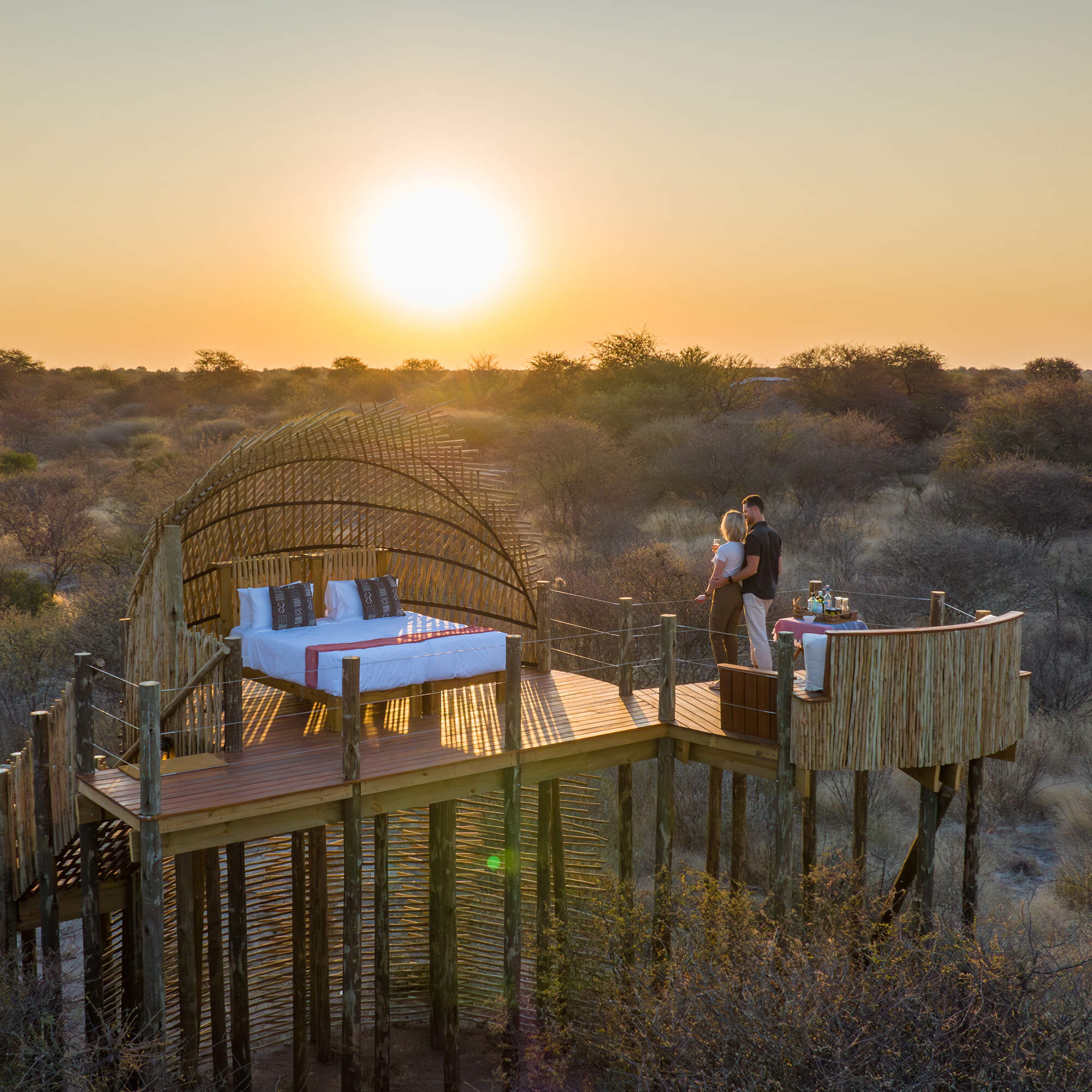
Gham Dhao Lodge
Within a private concession, Gham Dhao Lodge is one of a number of lodges located on the northern boundary of the CKGR, offering a year-round Kalahari experience.
When to go to Central Kalahari Game Reserve
Our month by month guide: What it's like to visit Dinaka in Central Kalahari Game Reserve
Jan
Feb
Mar
Apr
May
Jun
Jul
Aug
Sep
Oct
Nov
Dec
Central Kalahari Game Reserve in January
January marks the peak of the rainy season, transforming the arid terrain into a lush paradise with green grasslands and seasonal waterholes. Afternoon thunderstorms are common, bringing dramatic cloud formations and brief but intense downpours. Game viewing is spectacular, particularly in Deception Valley, where large herds of springbok, gemsbok, and wildebeest congregate, drawn by the nutrient-rich grasses.
Predators, including the famous black-maned Kalahari lions, thrive during this time, taking advantage of the abundance of newborn prey. Birdlife flourishes, with migratory species in full breeding plumage, filling the skies with vibrant colours and melodious calls. The combination of dramatic weather, abundant wildlife, and verdant landscapes makes this one of the most photogenic months in the Central Kalahari Game Reserve.
- Warm temperatures with frequent afternoon thunderstorms
- Large congregations of herbivores in the valleys
- High predator activity, particularly among lions and cheetahs
- Abundant migratory birds, including flamingos and raptors
- Lush, photogenic landscapes with dramatic cloudscapes
Our view
A very good time to visit
Weather in January
Central Kalahari Game Reserve in February
February continues the lush and green conditions, maintaining high concentrations of wildlife in the valleys. The abundance of food ensures that young animals, born in previous months, are still numerous, offering excellent predator-prey interactions as they become stronger but remain vulnerable. Birdwatching is at its best, with large numbers of waders, raptors, and colourful bee-eaters making the most of the insect-rich environment.
Relatively warm evenings make night drives comfortable, allowing guests to witness nocturnal species like brown hyenas and bat-eared foxes. Although thunderstorms still occur, they are typically brief and followed by stunning sunsets, bathing the plains in golden light.
- Lush landscapes, with scattered waterholes still full
- Predators actively hunting growing but vulnerable prey
- Exceptional birdwatching, with many species in breeding plumage
- Comfortable night drives with good sightings of nocturnal wildlife
- Dramatic sunsets following short-lived thunderstorms
Our view
A good time to visit, with pros & cons
Weather in February
Central Kalahari Game Reserve in March
March marks a transitional phase, as rains gradually decrease and the landscape begins to shift. The thick grass remains green, but visibility starts to improve as the vegetation thins slightly. Animal concentrations remain high in the valleys, with predators still capitalising on the abundance of prey. The last of the migratory birds prepare to depart, making this an excellent time for bird enthusiasts to catch their final glimpses of species like European rollers and yellow-billed kites.
As the air dries, dust and golden light enhance photographic opportunities, making it an ideal time for landscape photography. With fewer visitors compared to peak months, this is also a great time to enjoy a more exclusive experience.
- Rains taper off, with increased sunny days
- Wildlife still abundant, especially in Deception and Passarge Valley
- Predator-prey interactions remain at their peak
- Final weeks for migratory birds before they depart
- Excellent photography conditions - golden light and dramatic skies
Our view
A good time to visit, with pros & cons
Weather in March
Central Kalahari Game Reserve in April
Perhaps one of the best months to visit the Central Kalahari, April signals the end of the rainy season, yet the landscape remains vibrant. Seasonal water sources start to shrink, encouraging wildlife to remain near the valleys where grazing is still good. Morning and evening temperatures cool, making game drives more comfortable.
As the grasses begin to die back, visibility improves, making it easier to spot wildlife. Predators continue to linger in the valleys, as prey remains concentrated, providing excellent game-viewing opportunities. The clearer skies and crisp air make this a fantastic month for both wildlife and landscape photography.
- Cooler mornings and evenings, with little rainfall
- Vegetation thinning, improving game-spotting opportunities
- Wildlife still concentrated in valleys, though dispersal begins
- Excellent predator sightings, particularly cheetahs and lions
- Shoulder season pricing, making it an affordable yet rewarding time
Our view
Fantastic: the very best time to visit
Weather in April
Central Kalahari Game Reserve in May
May is a lovely month – usually with clear skies after the end of the rainy season. While the grass still holds some green hues, the land starts to take on its classic semi-arid Kalahari tones. Many herbivores begin to disperse into the surrounding vegetated dunes, though some remain in the valleys, followed closely by lions and cheetahs. The drying waterholes force game to move more, requiring greater tracking skills.
Early mornings and evenings are chilly, but daytime temperatures remain pleasant. As tourism increases, availability in lodges begins to decline, making early bookings essential.
- Cool mornings and evenings, but warm, dry days
- Wildlife still present, though dispersal begins
- Good predator activity, especially around remaining water sources
- Crisp air and golden light, ideal for photography
- Shoulder season ends, with increasing demand in lodges
Our view
A very good time to visit
Weather in May
Central Kalahari Game Reserve in June
In June, the dry season continues in earnest, bringing cool, crisp days and cold nights, sometimes dropping below freezing. As vegetation thins, spotting wildlife becomes easier, though animals are more spread out. Tracking skills become crucial for good sightings.
The lack of humidity means clear, stunning skies, both during the day and at night, making stargazing exceptional. With almost no cloud cover, the Milky Way is visible in all its glory, making Central Kalahari Game Reserve one of the best locations in Africa for astronomical photography.
- Warm days, freezing nights
- Wildlife more dispersed, requiring skilled tracking
- Peak predator activity continues, with great cheetah sightings
- Clear air enhances visibility for photographers
- Stunning night skies, perfect for stargazing
Our view
Fantastic: the very best time to visit
Weather in June
Central Kalahari Game Reserve in July
July is one of the coldest months in the Central Kalahari Game Reserve with dry air, chilly mornings, and freezing nights. Despite the cold, the clear, blue skies and bright sunlight make for perfect game drives. With vegetation at its sparse stage, wildlife visibility is excellent, though animals remain dispersed across the reserve. Tracking is key, with patient efforts rewarded by sightings of lions, cheetahs, and elusive brown hyenas.
The lack of light pollution makes CKGR one of the world’s best stargazing destinations, offering phenomenal views of planets, deep-space objects, and constellations.
- Cold nights, mild days, ideal for game drives
- Wildlife remains dispersed, requiring skilled tracking
- Predators remain active, especially cheetahs and lions
- Peak season begins, meaning high demand for camps
- Exceptional stargazing, with no humidity or light pollution
Our view
Fantastic: the very best time to visit
Weather in July
Central Kalahari Game Reserve in August
August remains dry and crisp, with temperatures slowly beginning to rise during the day, though nights remain cold. Occasional dust storms sweep across the Kalahari, adding an atmospheric drama to the landscape. With thin vegetation, game spotting is at its easiest, and smaller species, like honey badgers, aardwolves, and black-backed jackals, become more visible.
The cool, dry air enhances photographic clarity, creating sharp, vibrant imagery. As the Southern Hemisphere’s constellations reach their most visible stage, August is a prime month for astrophotography.
- Dry, warm days; cold nights persist
- Excellent visibility, making game-spotting easier
- Unique small predator sightings, including honey badgers and jackals
- Peak tourist season, with high demand in lodges
- Prime conditions for astrophotography, with dazzling celestial views
Our view
Fantastic: the very best time to visit
Weather in August
Central Kalahari Game Reserve in September
As temperatures begin to rise, the Central Kalahari Game Reserve transitions toward the hottest time of the year. The remaining water sources shrink, concentrating wildlife near pans and occasional artificial waterholes. Dust in the air intensifies Kalahari’s legendary sunsets, turning the sky into a fiery display of oranges, pinks, and deep reds.
Wildlife tracking requires more effort, as herds remain widely dispersed, but big cat sightings remain rewarding. With the increased heat, many animals seek shade midday, making early morning and late afternoon game drives the most productive.
- Warmer days, cool nights, perfect for most visitors
- Wildlife increasingly dependent on remaining water sources
- Active tracking needed for optimal predator sightings
- Striking sunsets, enhanced by dust and golden light
- High season rates, requiring early bookings for accommodation
Our view
Fantastic: the very best time to visit
Weather in September
Central Kalahari Game Reserve in October
October is the hottest month in the Central Kalahari Game Reserve, with daytime temperatures exceeding 40°C/104°F. The brutal heat forces animals into the shade, making early morning and late evening the best times for game drives. Big cats and scavengers patrol the remaining waterholes, creating dramatic predator-prey encounters.
Despite the harsh conditions, October’s dry, cracked landscapes offer striking photographic opportunities, with lone acacia trees and heatwaves shimmering on the horizon. Dust storms are frequent, adding an element of raw wilderness to the experience.
- Extreme heat, often exceeding 40°C/104°F
- Predators concentrate around last remaining water sources
- Intense, dramatic survival scenes play out between prey and predator
- Unique desert-adapted species remain active in the mornings and even
- Spectacular desert photography, with surreal, arid landscapes
Our view
A good time to visit, with pros & cons
Weather in October
Central Kalahari Game Reserve in November
November signals the beginning of the rains, breaking the intense heat and triggering an instant transformation of the landscape. The first thunderstorms arrive, refreshing the dry terrain and encouraging new grass growth, which in turn attracts the first herds of springbok, gemsbok and a scattering of wildebeest back to the valleys.
The return of migratory birds marks the start of the green season, with waders, raptors, and bee-eaters flocking to the area. Lightning storms create spectacular nightscapes, offering dramatic photographic opportunities.
- Hot days with first rain showers, cooling the landscape
- Fresh grasses begin to sprout, drawing herbivores back to the valley
- Predators remain active, anticipating the return of prey
- Migratory birds return, increasing birdwatching opportunities
- Dramatic lightning storms, perfect for photographers
Our view
A good time to visit, with pros & cons
Weather in November
Central Kalahari Game Reserve in December
December fully ushers in the green season, bringing regular rain showers and cooler temperatures. The plains burst into life, with newborn springbok and gemsbok appearing in particularly large numbers, attracting lions, cheetahs, and leopards.
Birdwatchers will find December particularly rewarding, with the highest density of migratory species present. The fresh green scenery, reflective waterholes, and contrasting storm clouds create a stunning backdrop for photography. Fewer tourists during this period make it a more exclusive safari experience, with lower rates in many lodges.
- Cooler temperatures, with frequent refreshing rains
- Newborn animals appear, drawing predators
- Exceptional birdwatching, with diverse migratory species
- Dramatic scenery, with green landscapes and stormy skies
- Lower season rates, making it an affordable time to visit
Our view
A good time to visit, with pros & cons
Weather in December

Looking for inspiration on where to travel next?
Visit our trip chooser to explore your options and find inspiration for your perfect African adventure
Inspire me